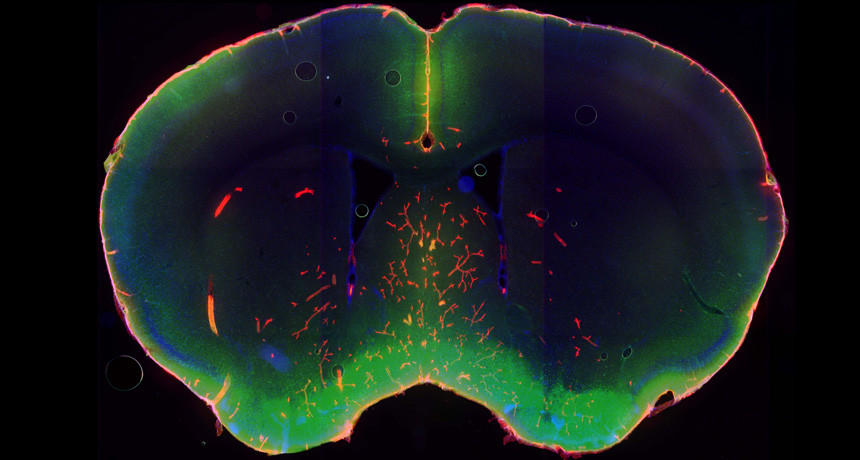Year in Review: Sleep clears the cluttered brain
Gunk between cells is cleansed during slumber

SLEEP CLEANER Tracer dyes (green, red) show where cerebrospinal fluid floods into the brain when a mouse is asleep. The fluid helps cleanse the brain of waste products that can build up and damage brain cells. Fluid flow nearly stops when the mice are awake.
L. Xie, H. Kang and M. Nedergaard







